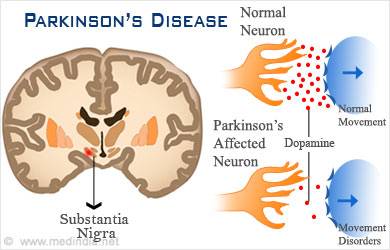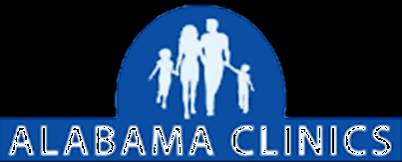Parkinson’s Disease - More Than Just the Shakes
Viewed: 3401
Posted by: Al Clinics
[email protected]
3347121170
Date: Nov 26 2018 12:15 PM
Parkinson’s disease affects approximately one million people in the United States, with most of them being men. It is named after British surgeon James Parkinson who first described the disease in detail in 1817 calling it “shaky palsy.” Parkinson’s disease is a neurodegenerative disorder, a disease caused by the loss of cells in the brain or spinal cord. It is a degenerative disease which means in most cases it will continue to gradually worsen. Symptoms develop very slow over years and due to its diversity no two people share the same experience of Parkinson’s disease. Symptoms that are commonly seen in patients affected are tremors while at rest, slowness of movement, stiffness of limbs, and balance problems.
Idiopathic Parkinson’s
This is the most common type of parkinsonism. Idiopathic means that the cause of the disease is unknown. This type of parkinsonism makes up 60% to 75% of diagnosed cases. Unfortunately, the only way to definitive diagnose idiopathic Parkinson’s requires a postmortem study of the brain.
Vascular Parkinsonism
This type of parkinsonism affects people with restricted blood supply to the brain. A severe onset of parkinsonism immediately following a stroke may indicate vascular parkinsonism. The most common symptoms of vascular parkinsonism are difficulty walking, urinary incontinence and memory problems. Symptoms associated with this type seem to mainly affect the lower half of the body. Some patients with vascular parkinsonism may swing their arms less than those with idiopathic Parkinson’s.
Drug-Induced Parkinsonism
Occasionally side effects of drugs affecting brain dopamine levels, such as anti-psychotics or anti-depressant medications, can cause parkinsonism. Symptoms of drug-induced parkinsonism do not seem to be progressive and most people will recover within months of stopping the drug that caused it. However, this can be hard since drug-induced parkinsonism is often mistakenly diagnosed as idiopathic Parkinson’s.
Even though not everybody will experience all of the same symptoms of Parkinson’s, there are typical patterns of progression that are defined in five stages.
Stage One
At this stage, the disease is at its mildest form. There may be some symptoms but they are not severe enough to interfere with activities of daily living. Often these symptoms are so minimal that they are overlooked. Usually family members and friends are the ones to notice changes in your posture, walking, or facial expressions. A unique symptom of stage one Parkinson’s is that tremors or other disabilities are exclusive to one side of the body. If diagnosed at this stage, prescribed medication can effectively minimize symptoms.
Stage Two
This is considered the moderate form of Parkinson’s disease. Symptoms are much more noticeable including tremors, stiffness, and trembling. A person’s posture may begin to change and difficulty walking increases. The progression from stage 1 to stage 2 can take months or even years. Majority of people at this stage are still able to live alone although they may be slower at completing certain tasks.
Stage Three
This stage marks a major turning point in the disease. Symptoms remain but are accompanied by loss of balance and decreased reflexes making the risk of falls greater. Medication combined with occupational therapy can help decrease symptoms and allow the person to be more independent.
Stage Four
Independence is what separates stage three from stage four. During this stage it is possible to stand without assistance but walking requires a walker or other type of assistive device. At this point, many people are unable to live alone due to the high risk of falls which can be extremely dangerous.
Stage Five
This is the most debilitating stage of Parkinson’s disease. Major stiffness in the legs can cause freezing upon standing making it impossible to stand or walk. 24/7 assistance is required to prevent falls and often a wheelchair is needed. Up to 30% of people at this stage experience confusion, hallucinations, and delusions. Dementia is also very common, affecting up to 75% of people at this stage. Unfortunately, at this stage the side effects from the medications can often outweigh the benefits.
Parkinson’s disease is caused by a lack of dopamine due to the loss of dopamine-producing cells in the brain. Dopamine is responsible for acting as a messenger between two brain areas to produce smooth, controlled movements. When dopamine is too low, movement becomes impaired; the greater the loss of dopamine, the worst the movement-related symptoms. There are also genetic predisposing factors that are responsible for progressive neuronal degeneration. So far, five genes have been identified to be definitely associated with Parkinson’s disease.
Sadly, Parkinson’s disease can’t be cured but symptoms can be controlled with medications. Your physician may also recommend lifestyle changes such as exercising, physical therapy, and a speech-language pathologist can help with speech problems. At later stages, surgery might be appropriate if the patient is not responding to drugs. Another option is called deep brain stimulation (DBS). During this FDA approved procedure, electrodes are implanted into the brain and connected to a small electrical device which sends small electrical pulses to your brain and reduces the symptoms of Parkinson’s disease.
Even if you are experiencing symptoms common among people with Parkinson’s disease, it is important to consult a doctor to be properly diagnosed. We are open 7 days a week at Alabama Clinics and walk-ins are welcome!
Alabama Clinics
2812 Hartford Hwy, Suite 1
Dothan, AL 36305
(334) 712-1170
www.alabamaclinics.com
<- back






1.jpg)





 (2)1.jpg)







.jpeg)




.jpg)









.jpeg)

 (1).gif)








.jpg)











1.jpg)



























.jpg)







.JPG)


.jpg)



1.jpeg)

 (2).jpg)









.jpg)





1.jpg)